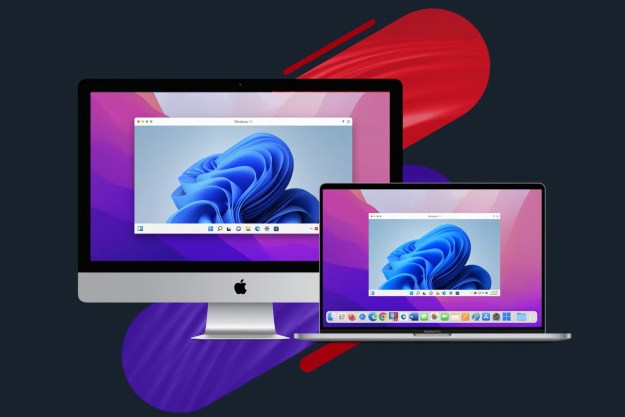Windows 10 and some ARM-based Windows 10 apps can perform better when virtualized on Apple’s new M1 Macs than it can when running natively on a native ARM-device like the Surface Pro X. That’s according to a new video posted on YouTube featuring a benchmarking experience.
In the tests, Windows 10 on Apple’s new M1 Mac Mini benchmarked with a 1,515 Single-Core score, and a 4,998 Multi-Core score when virtualized. That’s well ahead of what’s recorded natively with the Surface Pro X, which picks up a 764 single-core score, and a 2,983 multi-core score.
It’s not the first time we saw these numbers, however, as even when compared with Rosetta 2 natively on MacOS and native Geekbench 5 on Windows 10, Apple’s M1 chip still outperforms the Microsoft SQ1 processor in the Surface Pro X.
Though running Windows 10 on Apple M1 Macs isn’t yet officially supported via Bootcamp, the person behind the video, Martin Nobel, managed to virtualize the Microsoft operating system through QEMU (an open-source machine emulator) and Apple’s native hypervisor, known as Virtualisation.framework. This isn’t an easy task to do, but, Nobel was able to provide a look at what it could be like if Windows was natively supported on the new machines. An unofficial guide is also available for the process, provided by users with Apple’s new M1 Macs.
In other tests done in the video, games like Chess Titans, Solitaire, and Minesweeper are played in the virtualized Windows 10 environment. Virtualization would usually slow down a CPU, but in all cases, the games played fine with Apple’s M1 chip. Even web browsing works well, too, with pages loading instantly, and scrolling not lagging, even without graphics acceleration. It shows the power of Apple’s M1 CPU.
Microsoft has yet to announce plans to bring an ARM-based version of Windows 10 to Apple’s M1 Macs. It already works with many other laptop makers like Samsung and even chipmakers like Qualcomm to optimize Windows 10 on ARM for tablets and laptops the Surface Pro X or the Galaxy Book S.
According to Craig Federigh, Apple’s vice president of software engineering, however, the ball is in Microsoft’s court. He told a publication in an interview that Microsoft’s licensing doesn’t allow for the ARM-based version of Windows to work on M1 Macs, but the core technologies for this to happen are there in MacOS and the M1 chip, and that Macs are very capable of running it.
Editors' Recommendations
- Surface Pro 10 and Surface Laptop 6 have arrived — with a catch
- Surface Pro 10: all the major changes rumored for the new model
- Should you buy the Surface Pro 9, or wait for the Surface Pro 10?
- This Windows laptop costs under $1,000 and handily beats the MacBook Air
- The M3 MacBook Pro may launch sooner than anyone expected


